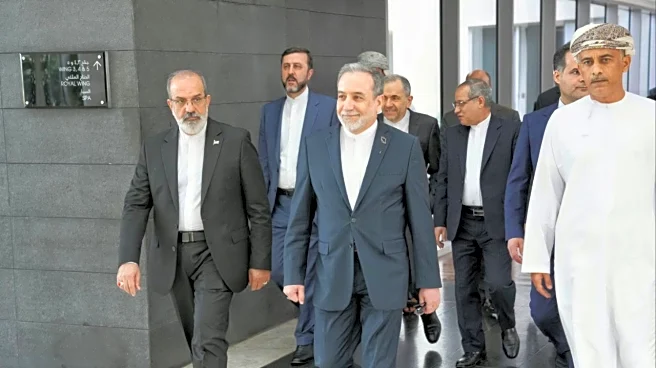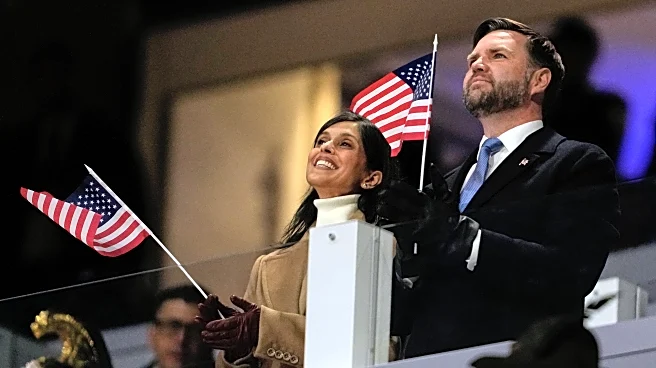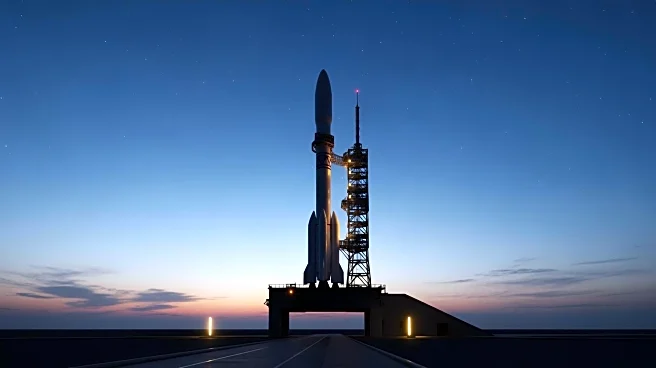What is the story about?
What's Happening?
President Trump has announced a $100,000 fee for H-1B visas, which allow U.S. companies to hire foreign workers for specialized roles. This policy shift is expected to affect employers and workers globally, particularly in countries like India and China, which are major sources of H-1B visa holders. The fee does not apply to current visa holders or renewals, but it has left companies and workers uncertain about future hiring practices. The tech industry, which heavily relies on H-1B workers, is particularly concerned about the potential disruptions to its workforce and operations.
Why It's Important?
The new fee for H-1B visas could have significant implications for U.S. industries, especially technology and outsourcing firms that depend on foreign talent. By increasing the cost of hiring foreign workers, the policy may encourage companies to seek domestic talent, potentially benefiting American workers. However, it could also lead to a shortage of skilled labor, affecting innovation and competitiveness. The policy may disproportionately impact tech giants and outsourcing firms, which employ large numbers of H-1B workers, and could lead to changes in recruitment strategies and wage structures.
What's Next?
As the policy takes effect, companies may need to reassess their hiring strategies and explore alternative visa options to mitigate the impact of the fee. The administration's proposal to prioritize higher-paid positions in the H-1B selection process could further influence employer decisions. The policy is likely to face legal challenges and industry pushback, prompting potential revisions or exemptions for certain sectors. The ongoing debate over immigration policy and its effects on the U.S. economy and workforce is expected to continue, with stakeholders closely monitoring developments.















